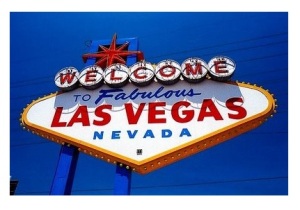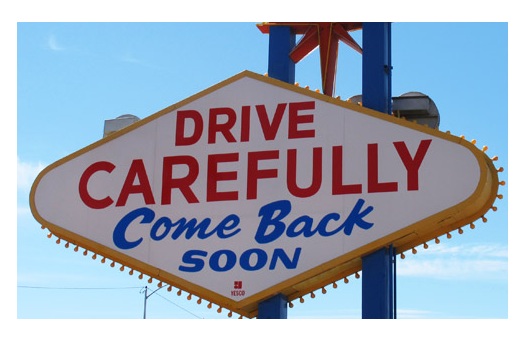 Many of the world’s largest hotel brands will run mystery guest programs either internally or with an inspection company. Traditionally these programs have been designed to monitor factors such as standards service, cleanliness and general condition of the hotel. In many ways mystery programs still include these measures but recently a new factor has been added which is most commonly described as ‘emotional engagement’.
Many of the world’s largest hotel brands will run mystery guest programs either internally or with an inspection company. Traditionally these programs have been designed to monitor factors such as standards service, cleanliness and general condition of the hotel. In many ways mystery programs still include these measures but recently a new factor has been added which is most commonly described as ‘emotional engagement’.
Hotel brands have always understood that 4 walls do not make a hotel and the human element is often what brings success and repeat business through the doors. Standards are still important and play a key role in the ‘guest journey’, however, ‘emotional engagement’ is becoming far more important to the overall guest experience and what makes brands standout from the competition.
So what is emotional engagement?
The dictionary defines emotion as ‘something that causes a reaction’ and is pretty much what hotel brands are trying to achieve through ‘emotional engagement’. In theory a guest should enter your property in a neutral state of mind and the experience should change this in either a positive or negative way. Now, we all know that humans are different and will all enter your hotel with different states of mind. What is important is that your colleagues make every possible effort to improve the state of mind in a positive way through ‘emotional engagement’.
How can it be measured?
Hotel inspectors/mystery guests will always measure ‘emotional engagement’ from a neutral point of view and provide a score based on a professional opinion.Questions such as ‘did the colleague smile and greet you in a friendly manner’, ‘did the colleague engagement in personalised conversation?’, ‘did the colleague make eye contact’ and ‘did the colleague bid a fond farewell and welcome you back’ will be used to measure ‘emotional engagement’.
These questions, along with other factors such as ambiance, the flow of service and the general environment will determine the ‘emotional engagement’ score which will either improve or reduce the experience for a guest. This should give you a good idea of how a normal guest would feel in the given situation. Your guests will obviously not be measuring you using the same system but many of the suggestions below will help to improve the ‘emotional’ experience of your guests in a positive way.
So how can you help your colleagues improve ‘emotional engagement’ in your hotel?
Where does it start?
Remember that in theory your guests should enter your hotel in a neutral state of mind and we know that this may not always be the case. So do everything you can before the guest arrives at your property to make sure that they are in a great state of mind. Your reservations and sales teams should ensure that your guest is comfortable from every angle before arriving at your hotel. Do they have directions? Do you know the flight time? Will someone meet the guest? Can you book dinner on the first night in advance? Can you offer any other service which are personal to your hotel and will you give a courtesy call prior to arrival?
Colleague awareness and understanding
Are your colleagues aware of what ‘emotional engagement’ means and more importantly do they understand how to demonstrate this to guests? Some would argue that this should start with your recruitment to ensure that you have emotionally intelligent colleagues entering your place of work. There is much more to this though, as you have the responsibility to train and coach your colleagues on how to be ‘emotionally engaged’ with your guests. In most cases, leading by example is absolutely key as often your colleagues will replicate your actions with guests. Show your colleagues how it is done, training them on the subject and coach them to always be on top of their game.
Pampering the guest
We talk about pampering the guests often and this literally means ‘pampering’ the guest. As we have mentioned above, do everything you can to make your guests feel comfortable while at your property. Do everything you can to fix any potential issues which may arise and most importantly check the satisfaction before checkout while you still have a chance.
Technology: good or bad?
Technology is becoming an increasingly significant part (and often an expectation) of the guest experience. Technology helps in many ways to improve the guest experience but do not let it become a barrier to ‘emotional engagement’. Your colleagues should be aware of this when interacting with the guests. Do they make eye contact and not focus on the computer screen? Do they smile and greet the guest when passing and do they make conversation while taking an order on a handheld device? Technology will always be key to your operation but be sure that your colleagues do not leave out the human touch.
Reward your colleagues for being ‘emotional engaged’
There is no better way to encourage ‘emotional engagement’ than rewarding your colleagues who demonstrate it. Interestingly, well known travel websites have are now starting to introduce programs which allow guests to highlight colleagues who have made a great impact to their experience for awards. You should also ensure that your colleagues are rewarded for proving great guest experiences and make sure this is made public throughout your property.
There are many angles to ‘emotional engagement’ and this will clearly be a key part in gaining an advantage in an increasing competitive market. Hotel brands will rely more on loyalty and this comes through an ‘emotional’ connection which your brand. Take some time to think about how you can help your colleagues to become more engaged on an emotional level.
Please note: This article is published for information only and any recommendations given are the opinion of the author and therefore, should only be used if the reader feels they are applicable.
 Successful hospitality teams have successful hospitality leaders – no surprise! But what does it take to be a successful hospitality leader who can consistently drive team results?
Successful hospitality teams have successful hospitality leaders – no surprise! But what does it take to be a successful hospitality leader who can consistently drive team results?








